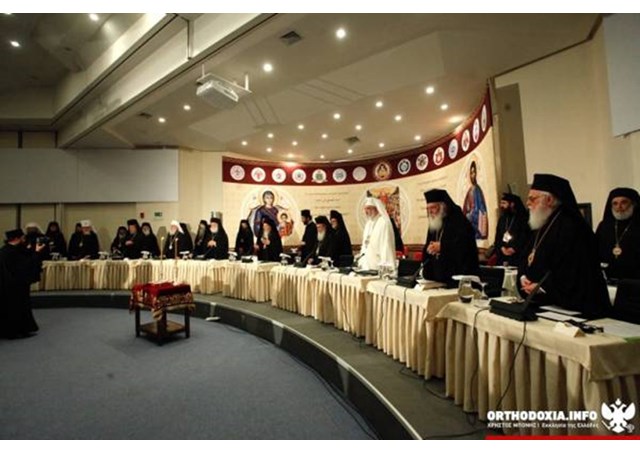Despite four of the national Orthodox Churches pulling out of the Holy and Great Council of the Orthodox Church, 170 bishops from 10 Orthodox Churches are currently attending the historic event on Crete. The heads of the Churches represented encouraged those who had decided not to attend to rethink their decision and to join the Council.
The Council, which is meeting from 19 to 25 June 2016, is discussing six draft documents on Orthodox matters, relationships with other Churches, and the global responsibility of Orthodox Christians.
The first document, ‘The Mission of the Church in Today’s World’, was approved unanimously on Tuesday. It is heavily influenced by Metropolitan John of Pergamon. The document contains five sections titled ‘The Dignity of the Human Person’, ‘Freedom and Responsibility’, ‘Peace and Justice’, ‘Peace and the Aversion of War’, and ‘The Attitude of the Church Toward Discrimination’. The concluding sixth section contains 15 points under the heading ‘The Mission of the Orthodox Church as a Witness of Love through Service’. These points address matters such as caring for those in need, economic injustice, hunger and poverty in the world, the ecological crisis, the sacredness of human life from conception to natural death, and ethical questions in the biological sciences.
The document is the fruit of five pre-conciliar conferences held in Chambésy, Switzerland, in recent decades. At the last meeting it was signed by leaders of all of the Orthodox Churches.
The church representatives at the current Pan-Orthodox Council hope that the leaders of the four Churches that decided not to attend will now read and sign the decisions of the Council. Archbishop Chrysostomos of Cyprus has clearly condemned the nationalism that marked the Council of Constantinople in 1872. One of the important tasks of the current Council is therefore to find internal answers to internal points of contention.
Bern, 22 June 2016

